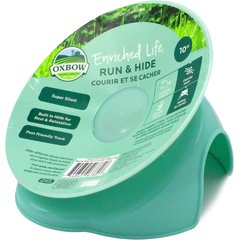Are Hedgehogs Good Pets? What to Know About These Tiny Animals

Photo by Peeraphat SrisophoniStock/Getty Images Plus
There’s something about their little round body and tiny button nose that makes the hedgehog undeniably cute.
But with those squee-worthy looks come a lot of very specific care—and the truth is that most pet parents underestimate what their hedgie needs to thrive.
If you’re wondering about adding a hedgehog to your family, do your research and consider adoption, so that you’ll be taking in an animal who really needs a family.
Key Takeaways
- Hedgehogs are adorable, but they have very specific needs that surprise a lot of pet parents.
- They’re not legal everywhere, so you’ll need to check if you’re allowed to have one.
- Hedgehogs prefer to live alone, so there can only be one hedgie—and they might prefer to not be snuggled by their human.
- Hedgehogs are most active at night and require enough space to exercise, along with toys for enrichment.
What To Ask Yourself Before Getting a Hedgehog
Are Hedgehogs Legal Where You Live?
As an exotic pet, hedgehogs are not legal everywhere—they’re illegal in New York City, as well as California, Georgia, Hawaii, Pennsylvania, and Washington, D.C. Before you decide to adopt, ensure you live in a place that allows hedgehogs as pets.
Is It Ethical To Keep a Hedgehog as a Pet?
Not to rain on anyone’s parade, but hedgehogs were once stolen from the wild and sold as pets. Thankfully, that’s usually no longer the case, but most animal welfare experts agree that most pet parents underestimate the care these exotic critters require.
Christina Hannigan, a hedgehog rescuer and co-chair of the Hedgehog Welfare Society, who co-runs a rescue in Chicago called Hannigan Hedgehog HQ, says that they do community outreach to educate hedgehog pet parent hopefuls about “what it really is to have a hedgehog in your life.”
If you decide you’re up for the challenge, don’t buy a hedgie from a pet store, says Melissa Giese, DVM, at Chicago Exotics Animal Hospital.
The reason? There’s no way to confirm where those cute critters were bred. Adoption is a better route, since you’ll be giving a home to a hedgehog who has nowhere else to go.
What To Know About Having a Hedgehog as a Pet
Hedgehogs have specific needs and require thoughtful care. Here are nine things to consider when thinking about bringing home a hedgehog as a pet.
Hedgehogs Prefer to Live Alone
Adorable as they are, you might be tempted to add more than one hedgie to your crew. But these little guys are solitary by nature and usually don’t want other hedgehogs around. In fact, forced cohabitation can cause stress and injury.
Hannigan warns that people often assume hedgehogs will get along like other small pets, such as hamsters. “They’re not rodents,” she explains. “They’re mammals and omnivores, and they’re wired to be alone.”
But what about cats or dogs? According to Dr. Giese, it depends on the temperament of the other pets and whether they’re able to leave your hedgehog alone.
If other pets in your home have high prey-drive or like to chase small animals, a hedgehog is not a good match.
They’re Picky Eaters
Despite what some pet stores may offer, Hannigan says most commercial hedgehog food isn’t great, as it may contain by-products and fillers that don’t support their nutritional needs.
Ideally you should keep to formulated hedgehog diets that include insects in the formula.
Dr. Giese says a combo of a fortified pellet diet along with supplemental insects is a good route. Her preferred mix is Mazuri along with two to four mealworms a day.
Recommended Products
You Shouldn’t Expect Them To Like You Right Away
Social media may make hedgehogs seem like cuddle bugs, but the reality is different.
Some may eventually enjoy handling, while others may never warm up fully. Daily interaction helps build trust with your hedgie, but you must let it happen on their terms.
Hedgehogs Like To Be Busy—Especially at Night
In the wild, nocturnal hedgehogs travel around 1 to 2 miles a night to forage for insects, worms, and slugs. Their instinct to roam doesn’t disappear in captivity, so their habitat must have enough space where they can stretch.
“They need a solid-surface wheel and space to roam,” says Dr. Giese. Avoid mesh wheels or those with gaps in them where your hedgie could get stuck.
Recommended Products
Other enrichment might include toys, tunnels, and fleece-lined hideouts.
Hannigan uses ferret cages, fleece bedding, and plastic igloos filled with soft scraps for them to burrow in.
“Some play with toys like balls or small stuffed animals, others don’t—but they all need the opportunity,” she says.
Recommended Products
You Need To Learn How To Hold Them
Hedgehogs are not naturally cuddly, so proper handling takes patience.
“Hedgehogs are pretty obvious when they are upset,” Dr. Giese says. “They will roll into a ball and make it painful to hold them as their spikes will be sticking straight out.”
If that’s not enough of a message, they might huff or hiss to let you know to back off.
Once they do trust you, Dr. Giese emphasizes a scoop-from-underneath technique by cupping their belly with both hands.
They’re Not the Best Match for Kids
Kids may love the idea of a cute, pokey pet, but “even the sweetest hedgehog has an off day and can bite,” says Hannigan. “And kids can drop them or squeeze too hard.”
Their nocturnal lifestyle also means they’re awake and active at night, which is when most kids—and even adults—will be asleep.
They Poop a Lot
Every pet has to do their business, but hedgehogs poop quite often—and usually when they’re moving around. This can make cleanup an ongoing project (not at all like a once-a-day sweep of the litter box).
Their poop is also more like a dog’s than a hamster’s. “That surprises people,” Hannigan says. “They need daily cleaning to keep the smell down.”
Hedgehogs Go to a Special Vet
Most vets do not have the experience to treat hedgehogs.
“They need exotic animal vets,” says Dr. Giese. She recommends a regular checkup every six to 12 months, because hedgies are prone to illness.
Make sure there’s an exotic vet nearby with hedgehog experience who can see your new pet before you bring them home. The Hedgehog Welfare Society maintains a list of hedgehog-friendly veterinarians who can help you keep an eye out for common health issues, including:
- Obesity (caused by diet and low exercise)
- Dental disease including tartar, gingivitis, or broken teeth
- Cancer or tumors, which become more common as they age
- Digestive issues
- Heart disease
- Respiratory illness
- Skin problems, such as mites, ringworm, or quill loss
- Eye and foot injuries
- Wobbly hedgehog syndrome, a neurological condition that causes paralysis
They Need a Lot of Space
Despite their small size, hedgehogs still need room to roam. Dr. Giese recommends a minimum of 2 x 3 feet of enclosure space, plus time outside it for enrichment. The enclosure should have wire sides and a plastic floor to prevent sores on their feet.
Recommended Products
And within that space, temperature control is key. Hedgies like to be warm (but not too warm—they can overheat at temps above 85 F) and are most comfortable between 70–80 F.
Inside their habitat, Hannigan says to skip hamster-style wheels with wire bottoms—that goes for their enclosures too. She prefers ferret cages that have a solid bucket-type wheel for exercise.
She recommends fleece as a base liner, along with a plastic igloo filled with fleece scraps for sleeping. Hannigan also provides her rescue hedgehogs with tubes and toys like small plushies and balls to play with, though she notes that some interact with the toys while others don’t.
Recommended Products
FAQs About Pet Hedgehogs
How long do hedgehogs live?
Wild hedgehogs live about three to four years, while captive hedgehogs may live up to 8 years or more.
How much do hedgehogs cost?
Adoption fees depend on which rescue you work with. Many will also provide starter advice for new hedgehog owners, along with any vet records or medical history. Avoid buying hedgehogs from breeders.
Are hedgehogs good for kids?
These little critters are sensitive, so hedgehogs are usually not the best pet for children. They’re nocturnal, sensitive to touch, can bite, and don’t always enjoy being held.
How big do pet hedgehogs get?
Larger than a hamster, but smaller than a guinea pig, most pet hedgehogs in the U.S. are African pygmy hedgehogs. Adults are about 6–8 inches long and weigh about 1 pound fully grown.


















